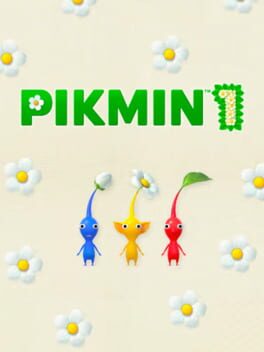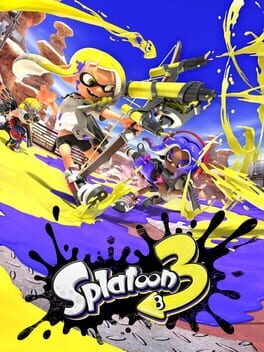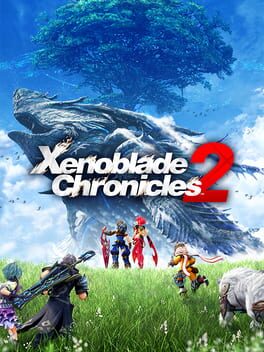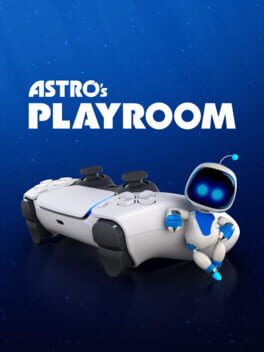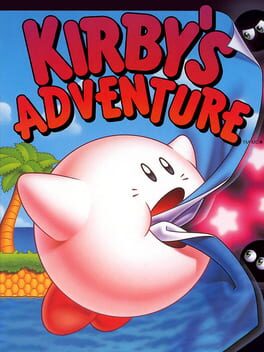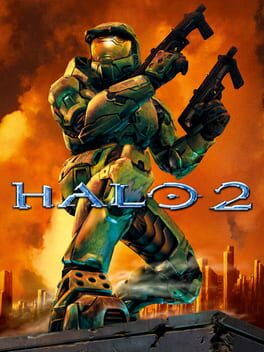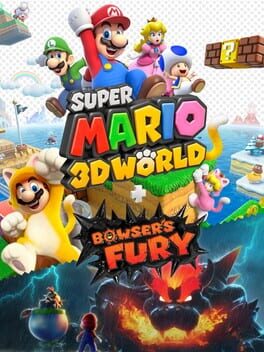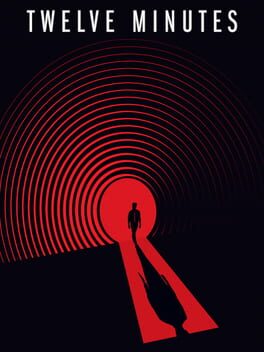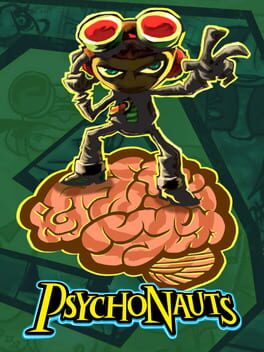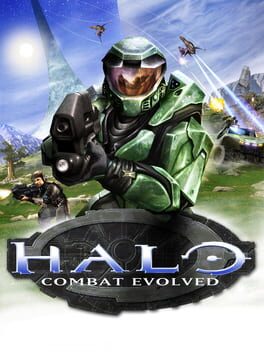Br0dee
I am incredibly disappointed in my personal decision, back in 2020, to feed into the outrage of the leaks and ignore the game at launch, despite my initial excitement. While far from perfect and fails to match the cohesion of the first title, the mostly successful narrative risks Part II decides to take can only be understood through a proper playthrough.
I find myself grappling with the narrative and structure more than anything given how fine-tuned and excellent the gameplay experience itself is. There seems to be a collective tired attitude towards the onslaught of cinematic Sony titles (rightfully so), but Naughty Dog is undeniably the peak of this direction. A realistic level of fluidity and weight to the combat and high attention to detail pairs well with the unavoidable insertion of cutscenes. Similar to the first, there's a toll to your actions as a player that would not have the same effect in any other medium, even if the delivery is awkward at moments (quick-time events, for example).
To summarize the problem, the narrative's delivery is largely disrupted by the structure, mainly boiling down to Ellie's section in Seattle. The game's opening is shocking yet effective, but the following 10+ hours feel poorly utilized. I appreciate the growing severity in her kills that leads the player to question the necessity behind enacting revenge, but your days in Seattle are mostly uneventful and incredibly repetitive. Ellie is forced to follow along the clues Tommy have left behind, with very little else happening in between. The flashback sequences, which are incredibly meaningful and effective in piecing together the moments between the two games, feel like a direct acknowledgment of the slowness, as very little plot progression is made to entertain the player in between. The enjoyable gameplay sequences keep the player stringing along, but even this aspect had its lower moments; Mainly, the open area segment when Ellie first arrives in Seattle, carrying over one of the weakest and blandest aspects from Uncharted 4.
Abby's route mostly resolves these issues, but suffers from the absence of an "end-goal" that consistently drives the plot. It makes the events feel relatively insignificant when compared to the ongoing Wolves vs Scars conflict and the tension in Ellie's hunt, but that insignificance is critical to humanizing her character. The moments are not equally engaging, but convincing, which is a worthwhile trade-off for the goals of the game.
Poor structure and consequently characterization stand out far more given how exceptionally executed these factors are in Part I, where the clear end-goal allowed for time spent to develop the relationship of Joel and Ellie and their interactions with the sparse yet memorable side cast, while narrative progress was still being made. The majority of Part II's side cast feel like plot devices to fuel the grief and fury of Ellie and Abby; That isn't to say their interactions are not believable nor engaging, but they never create a level of emotional attachment established with the cast of the first game.
Fortunately, these flaws are the sacrifice for an exceptional thematic continuation of Ellie's journey. I cannot understate the importance that physically playing through the game has on your perspective towards Ellie and Abby's actions. It goes beyond understanding their fuel for revenge, but the misery of watching their lives spiral into chaos as they act on these feelings. The switch in protagonist is not a shallow explanation that there are two sides to every story, but a greater comment on how the first-person gameplay experience forces us to attach ourselves and root for a side, where our actions and emotional attachments are irrational.
Not only are these feelings irrational, but most importantly, inconsistent. If time reverts and events change, where Joel now forces himself into the emergency room, and Abby is now at the side of the doctor, would he make the same decisions? Abby's physical presence does not change the fact that killing the doctor will leave the child fatherless and spark a thirst for revenge, but the ability for Joel to know beforehand may have led to a completely different ending where Part II cannot exist. This is the main aspect of the narrative I feel is misconstrued, that Ellie's vicious killing of Scars and Wolves is contradictory to the stance she takes in the end, as if that itself is a flaw when in actuality it's the point. If not for Ellie, Abby's interactions with Lev and Yara is Naughty Dog being as blatant as possible. I find boiling the game down to the shallow conclusion "Revenge is bad" does a disservice to the numerous moments throughout the game where Ellie and Abby's humanity are challenged, and that their development as characters is not so linear in their realization that their actions have consequences. The final few scenes could not be a more horrifying yet beautifully portrayed depiction of inconsistency.
Even after the sweeps of controversy that consumed the launch of Part II back in 2020, I find myself satisfied with Naughty Dog's consistent level of quality and effort to take risks in an era of Sony that feels stale and safe. I love the Infected world of Last of Us but am looking forward to how ND's talent can be handled in a new series going forward.
I find myself grappling with the narrative and structure more than anything given how fine-tuned and excellent the gameplay experience itself is. There seems to be a collective tired attitude towards the onslaught of cinematic Sony titles (rightfully so), but Naughty Dog is undeniably the peak of this direction. A realistic level of fluidity and weight to the combat and high attention to detail pairs well with the unavoidable insertion of cutscenes. Similar to the first, there's a toll to your actions as a player that would not have the same effect in any other medium, even if the delivery is awkward at moments (quick-time events, for example).
To summarize the problem, the narrative's delivery is largely disrupted by the structure, mainly boiling down to Ellie's section in Seattle. The game's opening is shocking yet effective, but the following 10+ hours feel poorly utilized. I appreciate the growing severity in her kills that leads the player to question the necessity behind enacting revenge, but your days in Seattle are mostly uneventful and incredibly repetitive. Ellie is forced to follow along the clues Tommy have left behind, with very little else happening in between. The flashback sequences, which are incredibly meaningful and effective in piecing together the moments between the two games, feel like a direct acknowledgment of the slowness, as very little plot progression is made to entertain the player in between. The enjoyable gameplay sequences keep the player stringing along, but even this aspect had its lower moments; Mainly, the open area segment when Ellie first arrives in Seattle, carrying over one of the weakest and blandest aspects from Uncharted 4.
Abby's route mostly resolves these issues, but suffers from the absence of an "end-goal" that consistently drives the plot. It makes the events feel relatively insignificant when compared to the ongoing Wolves vs Scars conflict and the tension in Ellie's hunt, but that insignificance is critical to humanizing her character. The moments are not equally engaging, but convincing, which is a worthwhile trade-off for the goals of the game.
Poor structure and consequently characterization stand out far more given how exceptionally executed these factors are in Part I, where the clear end-goal allowed for time spent to develop the relationship of Joel and Ellie and their interactions with the sparse yet memorable side cast, while narrative progress was still being made. The majority of Part II's side cast feel like plot devices to fuel the grief and fury of Ellie and Abby; That isn't to say their interactions are not believable nor engaging, but they never create a level of emotional attachment established with the cast of the first game.
Fortunately, these flaws are the sacrifice for an exceptional thematic continuation of Ellie's journey. I cannot understate the importance that physically playing through the game has on your perspective towards Ellie and Abby's actions. It goes beyond understanding their fuel for revenge, but the misery of watching their lives spiral into chaos as they act on these feelings. The switch in protagonist is not a shallow explanation that there are two sides to every story, but a greater comment on how the first-person gameplay experience forces us to attach ourselves and root for a side, where our actions and emotional attachments are irrational.
Not only are these feelings irrational, but most importantly, inconsistent. If time reverts and events change, where Joel now forces himself into the emergency room, and Abby is now at the side of the doctor, would he make the same decisions? Abby's physical presence does not change the fact that killing the doctor will leave the child fatherless and spark a thirst for revenge, but the ability for Joel to know beforehand may have led to a completely different ending where Part II cannot exist. This is the main aspect of the narrative I feel is misconstrued, that Ellie's vicious killing of Scars and Wolves is contradictory to the stance she takes in the end, as if that itself is a flaw when in actuality it's the point. If not for Ellie, Abby's interactions with Lev and Yara is Naughty Dog being as blatant as possible. I find boiling the game down to the shallow conclusion "Revenge is bad" does a disservice to the numerous moments throughout the game where Ellie and Abby's humanity are challenged, and that their development as characters is not so linear in their realization that their actions have consequences. The final few scenes could not be a more horrifying yet beautifully portrayed depiction of inconsistency.
Even after the sweeps of controversy that consumed the launch of Part II back in 2020, I find myself satisfied with Naughty Dog's consistent level of quality and effort to take risks in an era of Sony that feels stale and safe. I love the Infected world of Last of Us but am looking forward to how ND's talent can be handled in a new series going forward.
2023
An ingenious mashup of unique, tactical gameplay, with Nintendo's unique creative shine, packaged in the charming aesthetics of the early 2000s gaming era. The core concept of managing dozens of Pikmin across wildlife areas and effectively managing your limited time is so impressively fine-tuned for being the first in the series.
I played the third game a few years ago, which made me feel the loss of specific mechanics that added depth to the experience, especially the lack of multiple captains and more Pikmin types. The first rides a line of being too janky or unvaried, but the short length keep things in balance. This stands especially true with the ease in difficulty that 3's enhancements bring, where the first's deadline of 30 days add a constant threat of failure without feeling stressful (Even if I wish the game's deadline was shorter, as multiple critical slip-ups, especially in the Final Trial, resulted in little punishment).
The smaller scope allows for 1 to stand on it's own as a valuable and unique journey. I've never been one for replaying games, but I feel incredibly compelled to return to this eventually, knowing how many ridiculous mistakes could be easily avoided and bump up my performance drastically. Simply a joyful, uniquely Nintendo experience.
[Completed in 28/30 days. Surviving Pikmin: 62. Total Pikmin lost: 1228. Total Pikmin sprouted: 1303]
I played the third game a few years ago, which made me feel the loss of specific mechanics that added depth to the experience, especially the lack of multiple captains and more Pikmin types. The first rides a line of being too janky or unvaried, but the short length keep things in balance. This stands especially true with the ease in difficulty that 3's enhancements bring, where the first's deadline of 30 days add a constant threat of failure without feeling stressful (Even if I wish the game's deadline was shorter, as multiple critical slip-ups, especially in the Final Trial, resulted in little punishment).
The smaller scope allows for 1 to stand on it's own as a valuable and unique journey. I've never been one for replaying games, but I feel incredibly compelled to return to this eventually, knowing how many ridiculous mistakes could be easily avoided and bump up my performance drastically. Simply a joyful, uniquely Nintendo experience.
[Completed in 28/30 days. Surviving Pikmin: 62. Total Pikmin lost: 1228. Total Pikmin sprouted: 1303]
2019
Frequently, I grow anxious when thrown into open areas in games with little to no direction. Even in massive titles, that hold a plethora of side activity to conquer, I find comfort in the assurance that the main path is in sight when I'm ready to go down it. A Short Hike is fully committed to a lack of hand-hold behavior, with no map and few directional boards scattered around, yet there exists no anxiety in the gameplay experience.
A Short Hike's success, I believe, is only achievable through its short playtime. The forest/island area, at first, lacks visual distinction. Quick paths along the shore, small land masses planted in the middle of the swimmable sea, a campsite building amongst tall trees. From the game's opening, there is no incorrect pathway, with only the task of reaching the hike's peak in front of you.
What begins as foreign territory quickly grows familiar in just under a few hours. Generic landmarks, like a cemetery or lighthouse, fill the relatively small map size. While overwhelming at first, the game does not punish aimless exploration. Getting from Point A to Point B on two separate sides of the map only takes a few minutes, or even less as you upgrade your flight abilities and learn optimal pathways.
The map is small in size, yet dense in activity. Just the simple action of learning to get to a specific piece of higher ground with weaker flight options is reward in of itself, largely in thanks to the tight ground movement and satisfying gliding mechanic. More importantly though, a variety of animal hikers populate the trail, offering rewards to your collectibles and traveling. Cute in design, their placement on the map adds to your sense of surroundings, their wacky conversations filling the small gaps of stillness in your hike.
The rewards that hikers offer you can be valuable at times, upgrading your flying and climbing abilities. Many times though, your reward is relatively useless, like a medal or hat cosmetic. While these may make certain side quests less useful over others, I just do not care. An excuse to spend more time in the beautifully vibrant art design, listen to the quaint yet pleasant soundtrack, and attempting to test just how fast I can glide from high points, is well worth it.
I see many label A Short Hike as this apex of the recent "Cozy Indie Game Movement" created in the last few years. The gameplay experience is warm and relaxing, but I feel the negative connotation unfairly matches the title. A Short Hike is so much more than its aesthetic, and I'm pleased to have finally gotten to one of the best indie experiences I've ever played.
A Short Hike's success, I believe, is only achievable through its short playtime. The forest/island area, at first, lacks visual distinction. Quick paths along the shore, small land masses planted in the middle of the swimmable sea, a campsite building amongst tall trees. From the game's opening, there is no incorrect pathway, with only the task of reaching the hike's peak in front of you.
What begins as foreign territory quickly grows familiar in just under a few hours. Generic landmarks, like a cemetery or lighthouse, fill the relatively small map size. While overwhelming at first, the game does not punish aimless exploration. Getting from Point A to Point B on two separate sides of the map only takes a few minutes, or even less as you upgrade your flight abilities and learn optimal pathways.
The map is small in size, yet dense in activity. Just the simple action of learning to get to a specific piece of higher ground with weaker flight options is reward in of itself, largely in thanks to the tight ground movement and satisfying gliding mechanic. More importantly though, a variety of animal hikers populate the trail, offering rewards to your collectibles and traveling. Cute in design, their placement on the map adds to your sense of surroundings, their wacky conversations filling the small gaps of stillness in your hike.
The rewards that hikers offer you can be valuable at times, upgrading your flying and climbing abilities. Many times though, your reward is relatively useless, like a medal or hat cosmetic. While these may make certain side quests less useful over others, I just do not care. An excuse to spend more time in the beautifully vibrant art design, listen to the quaint yet pleasant soundtrack, and attempting to test just how fast I can glide from high points, is well worth it.
I see many label A Short Hike as this apex of the recent "Cozy Indie Game Movement" created in the last few years. The gameplay experience is warm and relaxing, but I feel the negative connotation unfairly matches the title. A Short Hike is so much more than its aesthetic, and I'm pleased to have finally gotten to one of the best indie experiences I've ever played.
2022
Undoubtedly the most fine-tuned Splatoon experience to date. Small gameplay changes, like the squid dodge-roll, less gimmickey map design, and the best selection of specials to date near perfects the frantic gunplay interactions I love from the series. With everything that has changed, I'm disappointed in the drip-feed approach that the devs will not shake off. I believe the season/battle pass approach works well to incentivize play, but there is a noticeable lack of new variety in all categories. The new weapon categories are superb, but why so few? I appreciate the more thought-out stage design for competitive play, but why so selective in what returned at release and is included in the drip-feed? Perhaps the most egregious yet, why are there no new competitive or casual modes?
I love Splatoon as much as I ever did, with 3 being the apex of the current formula. But it feels as if the team has exhausted the potential as the series exists now, in a creative sense. The sequel has earned its right for a new, full priced release, but I worry we are at a crucial point in the series. I hope that the team breaks away from what has already been considered the "series staples," in both structure and content, as the IP clearly has more life to give.
Mastery status is for 100% completion of the story mode
I love Splatoon as much as I ever did, with 3 being the apex of the current formula. But it feels as if the team has exhausted the potential as the series exists now, in a creative sense. The sequel has earned its right for a new, full priced release, but I worry we are at a crucial point in the series. I hope that the team breaks away from what has already been considered the "series staples," in both structure and content, as the IP clearly has more life to give.
Mastery status is for 100% completion of the story mode
Reflecting on my experience with Xenoblade Chronicles 2, which I first started in June of 2021, is beyond difficult. Despite everything that's changed in my life since then, Xenoblade has remained one of the few constants, even through periods of inactivity and (sometimes lengthy) breaks.
I think about the first time I witnessed the Kingdom of Uraya in its full glory, swept away by the incredible score, lighting effects, and sheer wonder. I think about the futile attempts at explaining the combat system to family members, and why every piece of the cluttered UI is integral to all of the intricacies at play. I think about the constant attempts at "Tiger! Tiger!", surprised by how much time I could sink into a relatively small mini game, still entertained and eager to earn crystals for Poppi. I think about the late nights in handheld, plugging away at random affinity charts, as I kill yet another Perplexed Stoyan in Leftheria so I can earn a trivial boost in power to Mythra's Specials.
Throughout all of my individual memories, Xenoblade Chronicles 2 constantly left me in awe by its incredibly grand scale, seen in every aspect of the game. Every new Titan was a visual treat, and a gateway to a plethora of new exploration options for me to tackle, all while slowly picking away at an endless amount of microtasks and fighting as many unique monsters as I could find. This loop was only so effective because of the masterful combat system at its center (something that only experience can properly do justice), with the central blade mechanic forcing me to constantly adapt and improve my technique. While the story itself is far from perfect, I grew to feel connected to the cast and the Aegis' journey to Elysium, with the elusive locale propelling the philosophical pondering on what it means to live past your physical presence in such a cruel but realistic world (which truly shines in the very end).
Once I came upon the last few chapters of the game, I quickly scurried to re-explore all of the Titans that needed more of my attention, and began grinding out affinity charts I deemed important. After a certain point though, I came to a scary realization that, even though I didn't quite complete as much as I had hoped, I was contempt with the progress I had made and began to shift my focus entirely on the last few story missions. Rolling credits, it felt like a weight had been lifted off of my shoulders, left with nothing but appreciation for the magical experience that Xenoblade Chronicles 2 (which happened to be my 200th game completed, woo-hoo) was for me.
I think about the first time I witnessed the Kingdom of Uraya in its full glory, swept away by the incredible score, lighting effects, and sheer wonder. I think about the futile attempts at explaining the combat system to family members, and why every piece of the cluttered UI is integral to all of the intricacies at play. I think about the constant attempts at "Tiger! Tiger!", surprised by how much time I could sink into a relatively small mini game, still entertained and eager to earn crystals for Poppi. I think about the late nights in handheld, plugging away at random affinity charts, as I kill yet another Perplexed Stoyan in Leftheria so I can earn a trivial boost in power to Mythra's Specials.
Throughout all of my individual memories, Xenoblade Chronicles 2 constantly left me in awe by its incredibly grand scale, seen in every aspect of the game. Every new Titan was a visual treat, and a gateway to a plethora of new exploration options for me to tackle, all while slowly picking away at an endless amount of microtasks and fighting as many unique monsters as I could find. This loop was only so effective because of the masterful combat system at its center (something that only experience can properly do justice), with the central blade mechanic forcing me to constantly adapt and improve my technique. While the story itself is far from perfect, I grew to feel connected to the cast and the Aegis' journey to Elysium, with the elusive locale propelling the philosophical pondering on what it means to live past your physical presence in such a cruel but realistic world (which truly shines in the very end).
Once I came upon the last few chapters of the game, I quickly scurried to re-explore all of the Titans that needed more of my attention, and began grinding out affinity charts I deemed important. After a certain point though, I came to a scary realization that, even though I didn't quite complete as much as I had hoped, I was contempt with the progress I had made and began to shift my focus entirely on the last few story missions. Rolling credits, it felt like a weight had been lifted off of my shoulders, left with nothing but appreciation for the magical experience that Xenoblade Chronicles 2 (which happened to be my 200th game completed, woo-hoo) was for me.
2020
Never before have I seen a game developer be so egotistical and pompous about their own legacy before, but hey, they earned it.
I love how Astro’s Playroom takes the step beyond your typical tech demo into becoming a celebration of everything Sony has accomplished up until this point. It’s not only a super solid 3D platformer that introduces the gimmicks of the new Duelsense quite well, but is also an enlightening experience for someone who only recently really got into PlayStation last generation. Hats off to you Sony, and here’s hoping for 5 more generations of landmarks.
(Also, it feels so refreshing for Sony to take such a liberating step with the new Duelsense. It takes a lot of concepts inspired by previous Nintendo controllers but perfects them with a a pristine level of polish, while also bringing their own ideas to the table like with the haptic feedback. It bridges the gap between gimmick and realism that I’m so intrigued by looking into the future of their console. I only hope developers take advantage as much as Sony intended when looking at this game.)
I love how Astro’s Playroom takes the step beyond your typical tech demo into becoming a celebration of everything Sony has accomplished up until this point. It’s not only a super solid 3D platformer that introduces the gimmicks of the new Duelsense quite well, but is also an enlightening experience for someone who only recently really got into PlayStation last generation. Hats off to you Sony, and here’s hoping for 5 more generations of landmarks.
(Also, it feels so refreshing for Sony to take such a liberating step with the new Duelsense. It takes a lot of concepts inspired by previous Nintendo controllers but perfects them with a a pristine level of polish, while also bringing their own ideas to the table like with the haptic feedback. It bridges the gap between gimmick and realism that I’m so intrigued by looking into the future of their console. I only hope developers take advantage as much as Sony intended when looking at this game.)
1993
A package that’s absolutely filled to the brim with gameplay concepts, environments, and designs that still haven’t quite been improved upon up until today because of the quality that holds up. It’s unfortunate the bullshit that plagues most NES games is still present, but it’s one of the console’s shining examples of creativity and originality.
2004
It isn't the full improvement over the original that I'm hoping will happen, but the Halo series is truly beginning to mold into its own identity and something special as it begins to solidify itself as the gaming icon we see it as today.
From the introduction of the cinematic cutscenes to the larger variety of locations, you can still feel the actiony science-fiction war epic the original was aiming for, but now with even more to love about the universe. The breaking of factions as the Covenant aims to complete its mission of the Great Journey once again as Master Chief is left to orchestrate their destruction offers the same exhilarating feel of Combat Evolved with more to learn and appreciate. It's far less conclusive than CE (The ending in particular I feel pretty lukewarm on) but it gives us more of a reason to completely grasp every side of the picture. While character-wise the Arbiter and his missions weren't as interesting as MC's, the change in pace and objective offered a more introspective look into the Covenant and peaked my interest of the internal battle brewing between the Brutes and the Elites. Seeing it all interwoven so neatly until the last moment was brilliant and I really can't wait to see how the adventure develops further into the future.
The gunplay was already so well constructed in CE, it's no secret, even to Bungie. From the bigger additions like new vehicles and duel wielding to the smaller things like the improved health gauge system and shorter level times, it's the same satisfying combat but even more fast and fluid. Duel wielding two guns and immediately throwing a bomb to bouncing back and taking out a long rifle, it is unbelievable both how well the game holds up and how much of a badass you feel. One thing I loved about CE was how the science fiction and more realistic-war aspects complimented themselves so well, and it could not be more true here even as this grow more experimental.
It's clear that there's still more to improve though. The stronger variety in locations was a pleasant surprise, but the confusing sense of progression in certain levels, broken checkpoint system, and onslaught of repetitive corridors and waves are unfortunately still present. It's an improvement compared to CE but with how progressive everything else feels, it stands out as outdated and the weak link.
At the hands of the grand vastness of outer space, there is no end to war. Master Chief's struggle yet style continues to carry him forward to epic proportions, with even more potential from here on out. I can't wait to continue along the series playthrough.
From the introduction of the cinematic cutscenes to the larger variety of locations, you can still feel the actiony science-fiction war epic the original was aiming for, but now with even more to love about the universe. The breaking of factions as the Covenant aims to complete its mission of the Great Journey once again as Master Chief is left to orchestrate their destruction offers the same exhilarating feel of Combat Evolved with more to learn and appreciate. It's far less conclusive than CE (The ending in particular I feel pretty lukewarm on) but it gives us more of a reason to completely grasp every side of the picture. While character-wise the Arbiter and his missions weren't as interesting as MC's, the change in pace and objective offered a more introspective look into the Covenant and peaked my interest of the internal battle brewing between the Brutes and the Elites. Seeing it all interwoven so neatly until the last moment was brilliant and I really can't wait to see how the adventure develops further into the future.
The gunplay was already so well constructed in CE, it's no secret, even to Bungie. From the bigger additions like new vehicles and duel wielding to the smaller things like the improved health gauge system and shorter level times, it's the same satisfying combat but even more fast and fluid. Duel wielding two guns and immediately throwing a bomb to bouncing back and taking out a long rifle, it is unbelievable both how well the game holds up and how much of a badass you feel. One thing I loved about CE was how the science fiction and more realistic-war aspects complimented themselves so well, and it could not be more true here even as this grow more experimental.
It's clear that there's still more to improve though. The stronger variety in locations was a pleasant surprise, but the confusing sense of progression in certain levels, broken checkpoint system, and onslaught of repetitive corridors and waves are unfortunately still present. It's an improvement compared to CE but with how progressive everything else feels, it stands out as outdated and the weak link.
At the hands of the grand vastness of outer space, there is no end to war. Master Chief's struggle yet style continues to carry him forward to epic proportions, with even more potential from here on out. I can't wait to continue along the series playthrough.
I've felt like I've been in the minority for a while, having loved this game since the WIIU days and not quite understanding the hate it would receive. Now, after finally getting the full 100% playthrough I've aimed for since the original release, I have a newfound appreciation for 3D World, as well as new acknowledgment of its short comings.
Like Mario Kart 8 and other incredibly polished WIIU games, 3D World ushered the 3D Mario series into a new era of polish, being the first HD supported console as well. While it lacks the charming and unique visual styles of previous entries, the upgraded particle/visual effects and clean textures makes it incredibly pleasing to the eye and clearly gave the groundwork to future titles like Odyssey. It's an incredibly vital part of 3D World's identity, and leans more into the controversial side of the argument.
It's undeniable at this point the similarities 3D World shares with the NSMB series, instead in the 3D genre. It's a relatively short and quick experience, that throws as much variety to you in as little time as possible, and never pushes the boundaries to a large degree. Despite the clear comparison in design, the same can't be said in quality. Where NSMB fails in providing a fresh and consistently engaging experience, 3D World never stops being fun. It's so confident in it's bright and bubbly nature, with such vibrant locations and snazzy scores, and never waivers. I loved the different ways it also allowed me to approach each level with the surprisingly unique character selection in favor of a less unique Mario moveset (Not to say it doesn't feel as tight and fun to control as ever; The dive mechanics and speed increase make it somehow even more perfect. I can't ever imagine playing this game again without them.) It really feels like the developers were allowed to have full creative reign with this game's design, and while it led to a less focused experience, it doesn't devalue just how fun of a game it can still be.
On the other hand, the similarities that run between 3D World and the new content expansion, Bowser's Fury, are almost nonexistent. If anything, it's proven to me that we have the most competent and promising 3D Mario team in the history of Nintendo. It's so chaotic in structure and level design; There are no limits in how you approach almost every task ahead of you. It's pure, adrenaline-filled, 3D collect-a-thon enjoyment, with one hell of a final act. It's hard to say whether or not it's better than the base experience, but it easily makes the port rebuy more than worth it.
I'm really happy with how the public perception of this game has changed. Odyssey has filled the need for a new Collect-a-thon 3D Mario game, so 3D World has more room to thrive as its own being. It doesn't push the boundaries of one of the most inventive franchises in gaming history, but it's a shining example of the quality we can still expect from Nintendo blockbusters today.
Like Mario Kart 8 and other incredibly polished WIIU games, 3D World ushered the 3D Mario series into a new era of polish, being the first HD supported console as well. While it lacks the charming and unique visual styles of previous entries, the upgraded particle/visual effects and clean textures makes it incredibly pleasing to the eye and clearly gave the groundwork to future titles like Odyssey. It's an incredibly vital part of 3D World's identity, and leans more into the controversial side of the argument.
It's undeniable at this point the similarities 3D World shares with the NSMB series, instead in the 3D genre. It's a relatively short and quick experience, that throws as much variety to you in as little time as possible, and never pushes the boundaries to a large degree. Despite the clear comparison in design, the same can't be said in quality. Where NSMB fails in providing a fresh and consistently engaging experience, 3D World never stops being fun. It's so confident in it's bright and bubbly nature, with such vibrant locations and snazzy scores, and never waivers. I loved the different ways it also allowed me to approach each level with the surprisingly unique character selection in favor of a less unique Mario moveset (Not to say it doesn't feel as tight and fun to control as ever; The dive mechanics and speed increase make it somehow even more perfect. I can't ever imagine playing this game again without them.) It really feels like the developers were allowed to have full creative reign with this game's design, and while it led to a less focused experience, it doesn't devalue just how fun of a game it can still be.
On the other hand, the similarities that run between 3D World and the new content expansion, Bowser's Fury, are almost nonexistent. If anything, it's proven to me that we have the most competent and promising 3D Mario team in the history of Nintendo. It's so chaotic in structure and level design; There are no limits in how you approach almost every task ahead of you. It's pure, adrenaline-filled, 3D collect-a-thon enjoyment, with one hell of a final act. It's hard to say whether or not it's better than the base experience, but it easily makes the port rebuy more than worth it.
I'm really happy with how the public perception of this game has changed. Odyssey has filled the need for a new Collect-a-thon 3D Mario game, so 3D World has more room to thrive as its own being. It doesn't push the boundaries of one of the most inventive franchises in gaming history, but it's a shining example of the quality we can still expect from Nintendo blockbusters today.
2021
This is like playing through a Mario Maker puzzle level made by a two year old with almost no guidance or satisfying solutions, except here you get a terrible twist at the end to round the entire package out.
2020
Omori's clash of Earthbound-inspired RPG gameplay and psychological horror narrative experiences is both the strongest and weakest part of the game. While symbolically the parallel works incredibly well, its result in quality can feel quite jarring.
When in the Headspace, or bubbly RPG sections on your quest to save a friend, the variety in location and characters is interesting, but it only goes so far. I felt myself pretty bored wandering through these sections, and despite the combat system's intriguing concept of being able to switch weaknesses on the fly with the Emotion System, it felt largely underutilized in 95% of the battles you fought with low level enemies. I don't really have a problem with the ease of difficulty, its moreso the quickness of battles and low amount of SP that makes me resort to spamming basic attacks for the majority of my play through (Bosses were the fine exception though). I always just found myself wanting to get back into the Real World; luckily that payed off.
Omori's tragic finale is something I feel will sit with me for a really long time. Despite the abstract visuals and horror undertones that build upon the imagery in a very meaingful way, it also somehow still feels shockingly real. Seeing the immeasurable happiness the group in their early years felt with each other, to then ask the question whether that joy is something the characters will ever be able to reach again, is overwhelming. It feels impossible, just like the many other questions raised. Sunny's journey of perseverance, while may not create an absolute resolution, is inspiring and really ties the game's themes together. This all culminates into one of the best finales I've witnessed in a game until now.
Like I said before, the parallel in worlds and the meaning it brings to the journey is irreplaceable and one of the most important aspects to the fantastic narrative. I just wish Head Space's minute to minute gameplay did the rest of the experience justice. Despite that, Omori was an unforgettable experience that I think everyone should play to the end, because it's more than worth it.
When in the Headspace, or bubbly RPG sections on your quest to save a friend, the variety in location and characters is interesting, but it only goes so far. I felt myself pretty bored wandering through these sections, and despite the combat system's intriguing concept of being able to switch weaknesses on the fly with the Emotion System, it felt largely underutilized in 95% of the battles you fought with low level enemies. I don't really have a problem with the ease of difficulty, its moreso the quickness of battles and low amount of SP that makes me resort to spamming basic attacks for the majority of my play through (Bosses were the fine exception though). I always just found myself wanting to get back into the Real World; luckily that payed off.
Omori's tragic finale is something I feel will sit with me for a really long time. Despite the abstract visuals and horror undertones that build upon the imagery in a very meaingful way, it also somehow still feels shockingly real. Seeing the immeasurable happiness the group in their early years felt with each other, to then ask the question whether that joy is something the characters will ever be able to reach again, is overwhelming. It feels impossible, just like the many other questions raised. Sunny's journey of perseverance, while may not create an absolute resolution, is inspiring and really ties the game's themes together. This all culminates into one of the best finales I've witnessed in a game until now.
Like I said before, the parallel in worlds and the meaning it brings to the journey is irreplaceable and one of the most important aspects to the fantastic narrative. I just wish Head Space's minute to minute gameplay did the rest of the experience justice. Despite that, Omori was an unforgettable experience that I think everyone should play to the end, because it's more than worth it.
2005
Psychonauts is asking a lot from the player to be on board with its concept and goals. A level completely dedicated to a conspiracy mystery scavenger hunt on finding the "milkman" in a war between a group of girl scouts possessing cookie bombs and oddly item-specified detectives is enough evidence to back that sentiment up. And luckily for the most part, it works.
It does feel overbearing at times, which can translate into tedious or simply not fun gameplay with how deep it goes into a gimmick, and the overall structuring of events and mission set up is really odd, but Psychonauts takes a heavy risk and succeeds in providing a solid 3D platformer/collect-a-thon with a unique hook that stands it apart. Really invested now to see where Raz's journey goes next in Psychonauts 2.
It does feel overbearing at times, which can translate into tedious or simply not fun gameplay with how deep it goes into a gimmick, and the overall structuring of events and mission set up is really odd, but Psychonauts takes a heavy risk and succeeds in providing a solid 3D platformer/collect-a-thon with a unique hook that stands it apart. Really invested now to see where Raz's journey goes next in Psychonauts 2.
1997
Understanding this game's insane legacy on the medium and it's impact on the industry leaves a lot to live up to on a first playthrough. And while I can't say I fell in love with it like many others did, I have great respect for it and can see why it's so acclaimed.
Its narrative in today's landscape still feels fresh and innovative; I'm not a huge fan of the cast but Cloud and a few of the main dynamics were genuinely fantastic and showcased the game's true brilliance. Same could be said for the gorgeous landscapes and tracks accompanying them. It genuinely felt like a large scaled adventure playing before my eyes, but I could never get into the main materia system. The game already felt somewhat tedious and mundane to traverse, and putting in the effort to get the better materia through quests never felt worth it. Even at the times I felt like I was utilizing the system well, it never quite clicked and it's ultimately what held the game back for me from working, simply because of how that one factor impacted the rest of my journey.
Even if it didn't totally hit me the same it hit others, I completely understand the love for it and what I liked from the game was truly amazing. Even more eager to play Remake and see where it goes in terms of gameplay and story.
Its narrative in today's landscape still feels fresh and innovative; I'm not a huge fan of the cast but Cloud and a few of the main dynamics were genuinely fantastic and showcased the game's true brilliance. Same could be said for the gorgeous landscapes and tracks accompanying them. It genuinely felt like a large scaled adventure playing before my eyes, but I could never get into the main materia system. The game already felt somewhat tedious and mundane to traverse, and putting in the effort to get the better materia through quests never felt worth it. Even at the times I felt like I was utilizing the system well, it never quite clicked and it's ultimately what held the game back for me from working, simply because of how that one factor impacted the rest of my journey.
Even if it didn't totally hit me the same it hit others, I completely understand the love for it and what I liked from the game was truly amazing. Even more eager to play Remake and see where it goes in terms of gameplay and story.
2001
For how Halo is considered the pioneer of the modern FPS genre, it's a really interesting experience playing through this game. Tremendous age shows (Dozens of repeating areas/floors, mundane backtracking, and overall jank) but at the same time the gunplay and vehicle controls hold up incredibly well and still offer a really fun time.
It's very far from perfect, but an admirable piece of history that, despite many flaws, still holds value.
It's very far from perfect, but an admirable piece of history that, despite many flaws, still holds value.
I'm someone who really doesn't do well with horror, and tend to stay away from the genre as a whole - with that being said, RE7 is the scariest experience I've ever underwent, but all for the right reasons. Despite the absolute terror I felt throughout the game, it came from a genuine appreciation for its atmosphere, sound design, and characters. The Baker family are genuinely great and incredibly entertaining, especially Jack, and those are all easily my favorite parts about the game.
It's also my first Resident Evil game, and I understand the very different approach this one has compared to the rest, but I think they handled the mix between resource management and light combat extremely well. Where my main issues lie though - the game has a difficult job rekindling the same quality from the first two major areas, and while still great for the most part, feels apparent. The last few hours as a whole are either mediocre or borderline unenjoyable, and really bring the game down as a whole for me.
Have no regrets playing and overall was a great time. Definitely seems like a replay in the next year is inevitable, and it's a really great first example of the unique experience I can get from a horror game.
It's also my first Resident Evil game, and I understand the very different approach this one has compared to the rest, but I think they handled the mix between resource management and light combat extremely well. Where my main issues lie though - the game has a difficult job rekindling the same quality from the first two major areas, and while still great for the most part, feels apparent. The last few hours as a whole are either mediocre or borderline unenjoyable, and really bring the game down as a whole for me.
Have no regrets playing and overall was a great time. Definitely seems like a replay in the next year is inevitable, and it's a really great first example of the unique experience I can get from a horror game.

